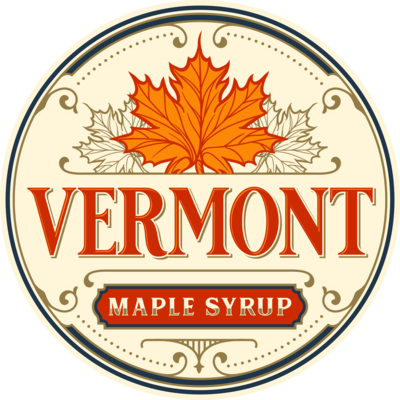There’s nothing like pure maple syrup from Vermont. In Vermont, small-town farmers each perfect their craft of maple-making through generations – culminating in the perfect bottle of maple syrup, no matter which farms you buy from. What is pure maple syrup from Vermont? Is it healthy? What goes into making it, and just why is it so special?

The story of Vermont’s maple syrup spans a lengthy history, with generations of farmers and producers alike, each perfecting their craft. Historical records show that indigenous tribes in the area have been producing maple syrup as early as 1609, 11 years before the Mayflower landed at Plymouth Rock.
Since being introduced syrup by the natives, European settlers used their improved technology to spearhead the production process. To extract sap for syrup, settlers utilized augers to make tap holes, fashioned wooden spouts for the holes, hung wooden buckets from the spouts and boiled the sap in their iron kettles.
Today, when looking back at these processing techniques, not much has changed. Some family Vermont farms still use hand-powered drills to bore tree holes. Wooden spouts, although uncommon, are still used as a DIY plastic alternative, and bucket collecting remains an arduous task in the deep wintertime snow. In addition, modern stainless steel boilers have out fashioned the iron kettle. Nevertheless, these relatively old and unchanged techniques laid the framework for pure maple syrup production, thus marking the birth of a Vermont tradition.
Pure maple syrup in Vermont
While all maple is technically pure, if it contains only maple syrup, not all maple syrup is organic. For organic maple syrup to earn its label, it's not enough for the final product to be preservative and pesticide-free. Sustainable production and land management are also necessary for USDA certification.
Pure and organic maple syrup must adhere to proper USDA regulations as written by the Northeast Organic Farming Association (1). Some rules and criteria for organic production include:
- Tree species diversity
- Conservation
- Tree stand growth and regeneration
- Thinning and harvesting techniques
- Residual stand damage
- Forest soil and road conservation
- Tapping depth
- Syrup storage
- Facility sanitation
Guidelines help syrup producers
Although they may appear extensive, these guidelines aim to safeguard Vermont sugar stands and ensure the long-term environmental sustainability of organic maple syrup growers. Following these guidelines is also advantageous for producers, as proper and healthy stand management results in a robust tree stand that yields high-quality products.
Organic maple syrup growers can ensure a long-lasting and productive maple stand by practicing sustainable growing methods. This guarantees a consistent supply of maple syrup for future generations.
Is pure maple syrup healthy?
Maple syrup is a healthier alternative to refined sugar and artificial sweeteners due to its lower glycemic index and higher concentration of antioxidants and minerals. Some minerals found in maple syrup include: riboflavin, zinc, magnesium, calcium, and potassium.
It is still important to recognize that maple syrup is a sweetener and should be consumed in moderation. Additionally, not all maple syrups are created equal. It's important to choose high-quality, organic options that haven't been heavily processed or mixed with other ingredients. Consumers should avoid artificial imitation syrups, as they contain corn syrup and other hazardous ingredients. While maple syrup can certainly be included in a healthy diet, it's important to practice moderation and make informed choices when selecting a product.
***
Vermont Maple Syrup makes the best organic Vermont maple syrup, maple sugar, and maple candy you will taste. In classy, nostalgic packaging that puts Vermont first. Organic, pure small-batch maple syrup and maple sugar — tapped, collected, and made available from our 1,200-acre farm in the small town of Guilford, Vermont, USA.










